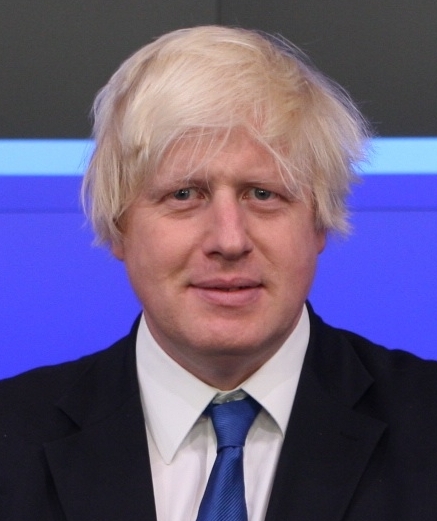
June 26, 2012, by Jonathan
Boris Johnson: To inevitable and beyond
Boris Johnson claimed last week that attempts to keep Greece in the Eurozone will fail. Whether or not his conclusion turns out to be right, it is instructive to look at the two reasons he gives.
The first is that it is a mistake to believe in inevitable progress—that “history is a one-way ratchet, an endless click click click forwards to a nirvana of liberal democratic free-market brotherhood of man”. Though he doesn’t quite say this, the suggestion appears to be that those who believe in greater economic and political union in Europe are likely to have made this mistake.
Though Boris is right that progress is not inevitable, it is not so clear that enthusiasts for closer union must be assuming that it is. Even if they were, their conclusion could still be correct—just as the conclusion of the following bit of spurious reasoning is correct: “Boris rides a bike; therefore, bikes are a very efficient mode of transport”. That’s an awful argument. But the conclusion is true.
The other reason he gives is that greater union would be undemocratic. “For the sake of bubble-gumming the euro together, we are willing to slaughter democracy in the very place where it was born. What is the point of a Greek elector voting for an economic programme, if that programme is decided in Brussels or – in reality – in Germany?”
This remark is interesting because it displays a bias in favour of the nation-state—or, more strictly, in favour of the states of Europe as currently constituted. For as is well-known in democratic theory, the ideal of democracy doesn’t seem capable of telling us how large the demos, or electorate, should be. Johnson’s remark suggests that it is obviously undemocratic for decisions affecting Greek voters to be taken in Brussels or Germany. He appears to be assuming that there should not be an electorate that includes Belgians, Greeks, and Germans in one demos. But those who are in favour of greater union typically favour just that—greater political union to go along with greater economic union.
To see the point, we can make a claim parallel to his. “What is the point of an East Midlands voter voting for an economic programme, if that programme is decided in London?” This is not obviously undemocratic, if the East Midlands voter is part of a democratic state that includes London.
As we might put the general point, the ideal of democracy presupposes a political unit; it cannot tell us how large the unit should be. We need to look to other political values and considerations to determine how large the unit should be.
One might try to argue, in reply, that the ideal of democracy itself incorporates a commitment to local, small-scale political units. On this view, genuinely democratic decisions require small political communities. But, of course, this does not help Johnson’s argument. For while Greece is a smaller political unit than Europe, it is not as small as could be. And nor is Johnson advocating the break-up of the United Kingdom into smaller units. In other words, he is taking for granted a commitment to the present constitution of nation states in Europe—in arguing against those who advocate a different constitution.
No comments yet, fill out a comment to be the first

Leave a Reply